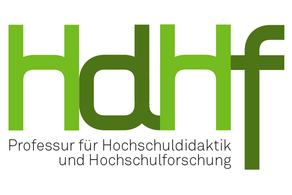Prof. Dr. Daniel C. Levy

Global Perspectives on Germany’s Private Higher Education Surge & Implications for Research
– Vortrag in englischer Sprache –
Datum: Donnerstag, 28. November 2024
Zeit: 16:00–17:30 Uhr
Ort: Vogelpothsweg 78 (CDI-Gebäude), Raum 114 | Online via Zoom (hybride Veranstaltung)
Global higher education in the last three-quarters of a century affords repeated opportunities to study both the initial emergence and a more modern surge in a nation’s private higher education (PHE). Germany presents both cases, with the East’s escape from Communism (and public monopoly), whereas this presentation focuses on the unified country’s private surge in recent decades. Within the global PHE surge that has come overwhelmingly in the developing world, Germany’s is, and should be studied and understood, as part of a broad Western European surge; even though Germany’s PHE share (even when put as high as 15%) is less than half global PHE’s 32%, German’s PHE share approximates the developed country median. Yet Germany lies in a lengthy line of countries which have been seized by surprise at their PHE’s rapid, vibrant expansion, neither centrally planned nor forecast, and now playing catchup to figure out, especially given the country’s proud public university tradition and free tuition, “what is going on here?”
Recent scholarship on global PHE discovers formidable patterns of how PHE grows against a background of public dominance and how these growth patterns generally convert into repetitive “subsectors,” “types,” “sub-types,” “forms,” and “sub-forms” of PHE. Whereas it is always necessary to identify contexts, causes, and variations for each country (and often within countries), global study is also essential to identify factors that are not unique to a country’s PHE as well as to appreciate what is prominent globally yet not domestically. In this last regard, “identity” PHE is only marginal in modern Germany, though religious HE retains a place. As is quite common outside the US, “world-class” PHE is absent, notwithstanding aspirants, while “semi-elite” PHEIs hold an important and rising position. Yet it appears to be the “product-oriented” type, non-elite academically but managerially focused on the job market, that may be the most critical type in Germany, Western Europe, and much of the developed world, while the developing world struggles more with the inherent weaknesses of the “demand-absorbing” type. It follows that the study of German PHE can benefit most from scholarship on PHE where it comes to the typical features discovered about growth, management, business-ties, curriculum, finance, and politics at product-oriented and semi-elite types. In turn, as the global literature has only recently delved empirically inside product-oriented PHE, it is likely that present German scholarship will in turn contribute greatly to global knowledge. A similar reciprocal point would hold regarding study of Germany’s PHEIs as nonprofit and for-profit forms.
Daniel Levy is Distinguished Professor, SUNY. In addition to his university position in Educational Policy & Leadership, University at Albany, Levy is the founder and director of PROPHE (Program for Research on Private Higher Education), a global scholarly network. He is lead general editor for PROPHE’s book series on global private higher education (Routledge). Levy’s ten authored books, including with the university presses of California, Chicago, Indiana, Johns Hopkins, Oxford, and Pittsburgh, and over one-hundred articles range across higher education policy, related non-profit sectors, and Latin American politics. Levy has received long-term and lifetime awards from the leading scholarly association of higher education studies and comparative education studies, respectively, and his Building the Third Sector received the best book prize in nonprofit studies (1997). Levy has lectured at most top-ranked U.S. universities and in six continents. A frequent consultant for leading international agencies, he co-authored the Inter-American Development Bank’s first ever policy paper on higher education. His 2024 book, A World of Private Higher Education (Oxford University Press) is the most definitive work on its broad subject matter.
Forschungskolloquium Hochschulforschung
Zentrum für HochschulBildung (zhb)
Professur für Hochschuldidaktik und Hochschulforschung





